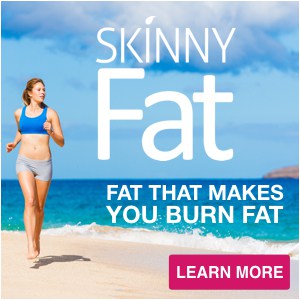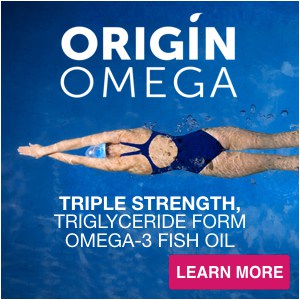When you really think about it, what do most diets have in common? They eliminate something specific – right? The Paleo diet eliminates legumes and dairy, a low-carb diet eliminates the majority of carbohydrates – a low fat diet all but eliminates fat, a vegan diet eliminates animal products, sugar free diets eliminate sugar, gluten free diets eliminate gluten… the list goes on and on. Dairy free, lectin free, oxalate free, purine free, sodium free, histamine free, FODMAP free. And for many different medical reasons, elimination or restriction is often necessary. But that brings up a critical question: what happens on an eating plan (such as the Paleo diet) where we focus more on eliminating or restricting foods and less about the essential micronutrients the diet provides? The answer is, that we can quickly become deficient in key micronutrients we all need to maintain basic health!
Our Study Reveals that Popular Diet Plans Don’t Deliver Essential Micronutrients
In 2010, we published a study in the prestigious Journal of the International Society of Sports Nutrition, titled Prevalence of Micronutrient Deficiency in Popular Diet Plans, which examined the sufficiency levels of twenty-seven essential micronutrients as recommended by the Reference Daily Intake (RDI) in four popular diet plans to see if the act of dieting itself could be creating a micronutrient-deficient state in the average American. In order to examine a variety of dietary philosophies, we included the Atkins Diet (low carbohydrate), the South Beach Diet (Mediterranean), and the Best Life Diet (low fat). The fourth diet we chose was the Dietary Approaches to Stop Hypertension (DASH) diet—rated the number one diet over- all by U.S. News & World Report for its nutritional completeness. Later, we decided to add both the Primal and Paleo diets into the mix in order to include two of the hottest diet crazes in the bookstores. After analyzing their specific menu plans down to the last grain of salt, we discovered that not one of the popular diet plans were able to adequately provide even the minimum micronutrient levels needed for basic health. Instead, our research found that a typical dieter, using one of these popular diet plans would be, on average, sufficient in just 12 of the 27 essential micronutrients (43.52%) analyzed even with an average calorie intake of 1,748 calorie per day. But the most surprising result we found, was that in order to achieve 100% RDI sufficiency in all 27 nutrients, a person following one of these well respected diet plans would have to ingest, on average, a whooping 27,575+/- 4660.72 calories per day. That’s almost two weeks worth of food!
Since this was obviously unrealistic and potentially dangerous, we then identified six micronutrients- biotin, vitamin D, vitamin E, chromium, iodine and molybdenum- that were consistently low or nonexistent in all the diet plans. We decided to take out these missing micronutrients from our requirements and re-evaluate the diets for 100% RDI sufficiency for the remaining 21 micronutrients. Our idea was that if we removed the 6 macronutrients most often deficient we may be able to achieve micronutrients sufficiency within a realistic calorie intake. Again, we unfortunately found that one could only achieve 100% RDI sufficiency for these remaining 21 micronutrients by eating 3475 +/- 544 calories per day, which is still far too many calories for a realistic weight loss or even weight maintenance. Even with completely different types of diets and different ratios of macronutrients (carbohydrate, fat, and protein) our research had determined that reaching 100% RDI sufficiency in our essential micronutrient was impossible from food alone within a safe and realistic calorie intake. As you might imagine, this is why we have poured our heart, soul, and energy into making the highest quality, most advanced multivitamin possible- because we think the science shows it is unrealistic and dangerous to rely on our modern food system and a seemingly “balanced diet” to meet 100% of your essential micronutrient needs – regardless of what type of diet you choose to follow.
Another study Identifies Missing Micronutrients in Three Different Commercial Weight-Loss Diet Plans
In a 2018 study published in the journal Nutrients, researchers conducted a similar experiment to our own, but looked at different commercial diet plans that emphasize something we value: reducing processed foods and increasing nutrient density! They analyzed 20 micronutrients in a week of sample diet menus, omitting certain micronutrients that had been found to be insufficient in other research such as our own, like chromium, biotin, vitamin A, silicon, iodine, molybdenum and sodium. Researchers evaluated two diets for weight loss: the high carbohydrate, moderate vegetable protein “Eat to Live Vegan/Aggressive Weight Loss” Diet (ETL-VAWL), the low carbohydrate, high animal protein “Fast Metabolism Diet” (FMD), and one diet for weight maintenance, the moderate carbohydrate, fat, and protein “Eat, Drink, and Be Healthy” (EDH) Diet.
As we found in our research, none of the diets met 100% RDI recommended intake for all of the essential micronutrients. Unsurprisingly, the vegan ETL-VAWL diet failed to provide 90% of the requirements for selenium, zinc, calcium, niacin, vitamin B12, D, and E. Many of these nutrients, especially B12, niacin, vitamin D, and zinc, are classic sufficiency challenges for vegans. With more diverse micronutrient sources, the FMD diet still failed to provide calcium, magnesium, potassium, and vitamins B1, D, and E. Performing the best was the EDH diet, which still failed to provide vitamin D, calcium, and potassium. Not only can we see that even the most thoughtfully diverse diet may indeed fall short, but also as we all need calcium, vitamin D, and vitamin B12 for healthy bones, these results spell particularly bad news for those at high risk of osteoporosis.
Recent Study Ties Improved Mineral Sufficiency to Improved Exercise Performance
Let’s laser in on minerals- as noted above, popular whole-food-based “healthy” diets may not provide adequate iodine, chromium, silicon, molybdenum, calcium, manganese, magnesium, selenium, zinc, or potassium. In a 2019 systematic review published in the journal Nutrients, researchers investigated the role of mineral supplementation on exercise performance. While they found that shorter-term iron and magnesium supplementation beyond the recommended intake had stronger evidence to support their value and that sweating a lot may require more sodium, the trend for all minerals with any benefit was that for those who were insufficient, becoming sufficient could improve performance, but larger doses did not confer strong evidential benefit except iron and magnesium in certain cases. This is a core concept we explore in our books and kept in mind when we formulated our multivitamin – nutreince: the “just-right” amount of a micronutrient optimizes health outcomes. This outcome aligns with what we know of digestion and absorption of minerals: if you need it, you’ll absorb it better, and the higher the dose encountered in the gut, the less of that mineral is absorbed. The bottom line is more is not always better.
Any Diet Can Be Deficient, But….
… All roads can lead to Rome, meaning any diet you choose can become sufficient in your essential micronutrients if you prioritize meeting your micronutrient needs. Because this shift in thinking is so unique, we coined a new term to describe a person who embraces this goal: we call these individuals a nutrivore. A nutrivore is someone who recognizes that micronutrient deficiency equals poor health and disease and that micronutrient sufficiency is the foundation of optimal health. Nutrivores are also environmentally conscious and tolerant of the nutritional preferences of others. Our vision is to empower everyone to come together behind one core nutritional belief that holds true for all people, regardless of dietary philosophy—the health-producing, disease-preventing power of micronutrient sufficiency. We maintain that in today’s modern world of nutritional uncertainty, a high quality multivitamin is absolutely necessary to cover your nutritional bases- especially of nutrients that one simply cannot access in a modern “healthy” diet. Our solution to this problem is two-fold: first, to give you access to the knowledge of how to create the best diet possible for your individual dietary preferences, and second, to create a high quality multivitamin, (nutreince),to safeguard against deficiency: to cover your bases with beneficial forms and quantities, to improve absorption compared to other products, and to do no harm by avoiding excessive supplementation that confers no additional benefit.
A Whole Nu-trient World
The best part about all this research is that once we stop arguing about which diet is best, we can develop respect, patience, and a true understanding of the role micronutrients play in the prevention and reversal of today’s most chronic health conditions and diseases. Humanity may even attend to our micronutrient problem and usher in an age of optimal health. While we expand on this philosophy and your plan to achieve micronutrient sufficiency in The Micronutrient Miracle, we hope this post has given you some understanding of how regardless if which dietary philosophy you follow it is important to be passionate about this issue- it’s all about the science!











